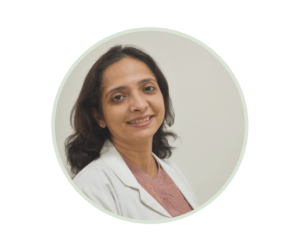The void and silence around infertility has given birth to many myths and misconceptions. Many believe these myths to be medical facts, which makes clarifying them even more important. Dr Priti A. Dhamija, an infertility expert at Sitaram Bhartia Hospital confronts these everyday and helps people separate the myths from the facts.
Here are the 5 most common myths and the truth that lies behind them.
1. Men don’t have an infertility problem
Contrary to the popular belief, men alone contribute to the ⅓ rd causes of infertility in a given population. The other 1/3rd is female infertility alone and the rest 1/3rd of cases is infertility in both the partners.
Dr Priti explains “The reason behind male infertility could be because of hormonal imbalance, semen abnormalities or problems with sexual functions like erectile dysfunction or difficulty with ejaculation among others.”
“These are health and sexual wellness issues which should be dealt with appropriate counselling, and couples should consult an infertility expert.”
2. If the couple doesn’t live together, they would never be able to conceive
With more jobs requiring partners to travel or even one of them to relocate, this takes a toll on the couple especially when they are trying to conceive. Dr Priti offers a solution,
“When couples understand their ovulation and fertile windows better, they can plan and commit to this process. “
3. Age only affects women when it comes to fertility, not men
Although age may not affect men as much as their female counterparts, their natural fertility also starts declining post-40 years.
“As men age so does their sperm, which affects a number of semen parameters. Aging is also associated with lower sperm count and decreasing genetic quality of the sperm” elaborates Dr Priti.
Proper planning and knowledge can help men tackle this problem.
4. Irregular periods means you will never be able to conceive
Women with irregular periods usually think that they can’t conceive and some may even write off having children altogether.
Dr Priti states, “Although regular periods are a sign of normal hormonal physiology, irregular periods don’t necessarily mean that you’re infertile. It does imply that your ovulation is disturbed and may just be that your cycle is out of schedule”.
It could be because of a variety of reasons like Polycystic Ovary Syndrome (PCOD), thyroid or prolactin disorder and early onset of menopause which requires a targeted approach and right medical guidance.
5. Long term use of contraception affects a women’s fertility
“Many women shy away from use of long-term contraceptives like IUDs or even oral pills as they believe that it’ll affect their fertility even after removing or discontinuing their usage,” Dr Priti shares “but the truth is that the return to fertility after use of contraceptives under proper medical guidance is nearly 100%.”
She further stresses that it is misuse of contraceptives, lack of regular check ups with gynecologists or ignoring certain symptoms like abnormal vaginal discharge that could lead to infertility issues.
Dr Priti concludes, “Infertility is a health disorder and should be considered as such by people. It requires guidance, care and treatment. Instead of delaying the treatments because of embarrassment, shame or family beliefs – it’s time to seek the right guidance and treatment that can help you.”
Learn more about Fertility Services at Sitaram Bhartia
Do you still have questions regarding your condition? Come in for an in-person consultation with Dr. Priti at our hospital in South Delhi! Please call on +91 9871001458 to schedule a consultation.
This article has been written with inputs from Dr. Priti Arora Dhamija, who has over 16 years of experience as a fertility specialist and obstetrician-gynecologist. She has received training from the Indian Fertility Society in Assisted Reproductive Technologies and fertility enhancing laparoscopy.

Dr. Priti Arora Dhamija, MBBS, Maulana Azad Medical College, Delhi (1999); M.D, Lady Hardinge Medical College (2004); DNB Obstetrics & Gynecology (2004); Diploma in Pelvic Endoscopy, Kiel, Germany (2014)

